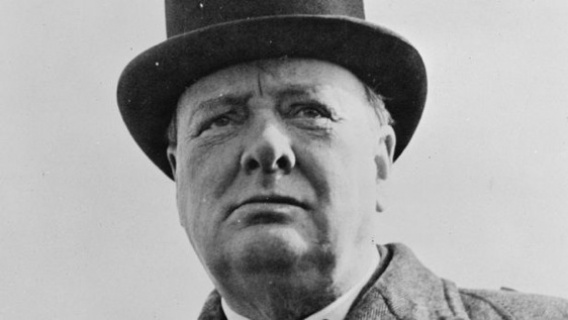
Churchill – he certainly knew what he was here for.
I was talking to some American university students a few weeks ago about – not surprisingly – the Second World War, when, much to my surprise, one of them asked this question: ‘is there anything useful you have learnt from all this that might help me find and keep a good job after I graduate?’
Well, I have had some pretty left field questions thrown at me before, but this one was entirely new.
The first thing that came into my head, as I considered an answer, was the courage and certainty I had encountered in many of the people I met who had fought against the Japanese Empire or the Nazis. And then I thought of the one quality that these people had seemed to lack and which many people who I have seen fail in employment have had in abundance – cynicism. Often disguised as ‘sarcastic wit.’ This kind of attitude is the reason why I saw a lot of potentially talented individuals never attain their potential. Often their bosses never wanted to mention the issue because they knew how difficult it is to discuss someone’s personality, so they would simply not renew their contract or try and sideline these difficult people. I mentioned this to the American students, and also expressed my long held view that it seems crazy that nowhere in the traditional educational system are students taught the importance of possessing enthusiasm and an attitude that demonstrates a willingness to help out.
I also told them that the vast majority of the most impressive people I’ve met personally, or have heard about through others, possessed a kind of passionate enthusiasm for what they were doing and were unencumbered by any sense of bitterness. I remember when I was making a film about the playwright and performer Noel Coward – a film looking in particular at his contribution to wartime propaganda – that the actress Joyce Carey told me that she most valued a visit from Coward when she was feeling low. ‘He gave you a sense that you could press on,’ she said. ‘Not live for ever or anything, just press on.’
Winston Churchill’s personality, of course, was crucial to motivating the British during WW2. And studying Churchill’s leadership skills made me realise that he seldom burdened himself with the question ‘What’s the point of things?’ – the toughest question of all, it seems to me, to answer – because he re-phrased it as ‘What am I here for?’ a question he most certainly could answer.
As Ghandi said: ‘Almost everything you do will seem insignificant, but it is important that you do it’.
 Twitter
Twitter





